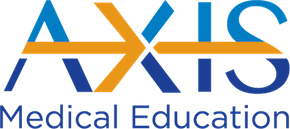New Spanish Language Stroke Prevention Website Aims to Remove Barriers to Equitable Health

09/10/2024
DALLAS, September 9, 2024 — While stroke is the fifth-leading overall cause of death in the United States, it disproportionately impacts Hispanic people. It is the third leading cause of death among Hispanic women and the fourth leading cause of death among Hispanic men.[1] According to the American Stroke Association, this disparity is driven by unmanaged health risk factors, limited access to health care, lower health literacy rates, cultural barriers and socioeconomic determinants of health.[2] The American Stroke Association, a division of the American Heart Association, is breaking through these barriers with the launch of a new culturally relevant Spanish language website, DerrameCerebral.org.
The new website is specifically tailored to the Hispanic and Latino community, offering a digital series of games and activities, called the R.Á.P.I.D.O. Experience, designed to educate users on how to recognize the warning signs of a stroke. It also provides accessible resources on stroke prevention, risk factors, warning signs, treatment and recovery, including life-saving information for survivors, caregivers and health care professionals. This new website is part of the continued efforts of the Association to provide a digital experience to all communities and championing better health outcomes for everyone, everywhere.
“When it comes to a stroke, every second counts,” said Eduardo Sanchez, M.D., M.P.H., FAHA, the American Heart Association’s chief medical officer for prevention. “By addressing the specific language needs of many in the Hispanic and Latino community, we are breaking a barrier that often stood in the way of prompt medical attention. Working with our community to teach them what life after a stroke looks like and how to prevent it, will ultimately lead to a healthier future.”
As the American Heart Association celebrates 100 years of lifesaving service, this new website and Spanish language experience reflects a commitment to expand outreach to those communities at highest risk for stroke and other cardiovascular issues. By leveraging cultural relevance, the new website aims to develop tools and resources to support the Hispanic and Latino community, ultimately fostering better health outcomes.
A stroke is an emergency that can happen to anyone at any time and immediate medical attention is crucial. The American Stroke Association recommends learning the signs of a stroke and discussing risk management with your health care team.
Last year, the American Heart Association launched its culturally relevant Hispanic and Latino stroke warning signs campaign with the adoption of the Spanish stroke acronym R.Á.P.I.D.O.
Spot a stroke R.Á.P.I.D.O.
✓ R - Rostro caído (Face drooping)
✓ Á - Álteración del equilibrio (Loss of Balance, or Lack of Coordination)
✓ P - Pérdida de fuerza en el brazo (Arm weakness)
✓ I - Impedimento visual repentino (Sudden vision difficulty)
✓ D - Dificultad para hablar (Slurred or Strange Speech)
✓ O - Obtén ayuda, llama al 911 (Get help, call 911)
For more information about R.Á.P.I.D.O. and stroke awareness, visit www.DerrameCerebral.org.
Additional Resources:
###
About the American Stroke Association
The American Stroke Association is a relentless force for a world with fewer strokes and longer, healthier lives. We team with millions of volunteers and donors to ensure equitable health and stroke care in all communities. We work to prevent, treat and beat stroke by funding innovative research, fighting for the public’s health, and providing lifesaving resources. The Dallas-based association was created in 1998 as a division of the American Heart Association. To learn more or to get involved, call 1-888-4STROKE or visit stroke.org. Follow us on Facebook and X.
About the American Heart Association
The American Heart Association is a relentless force for a world of longer, healthier lives. We are dedicated to ensuring equitable health in all communities. Through collaboration with numerous organizations, and powered by millions of volunteers, we fund innovative research, advocate for the public’s health and share lifesaving resources. The Dallas-based organization has been a leading source of health information for a century. During 2024 - our Centennial year - we celebrate our rich 100-year history and accomplishments. As we forge ahead into our second century of bold discovery and impact our vision is to advance health and hope for everyone, everywhere. Connect with us on heart.org, Facebook, X or by calling 1-800-AHA-USA1.
[1] American Stroke Association. 2022. Let’s Talk About Stroke. https://www.stroke.org/-/media/Stroke-Files/Lets-Talk-About-Stroke/About-Stroke/DS18658-LTAS-Hispanic-Latinos_Stroke_2022.pdf
[2] CDC. Vital Signs: Hispanic Health. https://archive.cdc.gov/#/details?url=https://www.cdc.gov/vitalsigns/hispanic-health/index.html
Disclaimer: AAAS and EurekAlert! are not responsible for the accuracy of news releases posted to EurekAlert! by contributing institutions or for the use of any information through the EurekAlert system.
